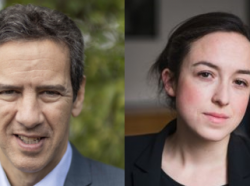The High Court (Waksman J) has handed down judgment in a case addressing a number of important procedural issues regarding the conduct of procurement litigation.
Aliatech Limited (“A”) issued proceedings under the Public Contracts Regulations 2015 (“the PCR 2015”) alleging that Birmingham City Council (“BCC”) had acted unlawfully by deliberately structuring a procurement so as to prevent A being awarded a public contract for cybersecurity services.
A had previously provided cybersecurity services to BCC, but had its previous contract terminated without reasons pursuant to a ‘termination for convenience’ provision.
BCC subsequently procured replacement services using a framework agreement to which A was not a party, with the effect that A was effectively excluded from seeking to compete to be awarded the new contract.
For a number of months the parties engaged in pre-action correspondence in which A expressed concerns regarding the lawfulness of BCC’s conduct and sought disclosure of BCC’s reasons for terminating the original contract and choosing to use a framework to which A was not party. BCC refused to respond substantively to these questions.
Belatedly, after the point in time at which it considered the applicable statutory limitation period to have expired, BCC disclosed that:
(1) It had terminated A’s previous contract because of concerns about serious impropriety regarding certain officers of BCC.
(2) BCC’s investigation into the relevant matters had concluded that its officers were guilty of impropriety, but had not indicated any link to A.
(3) Notwithstanding this, BCC decided to terminate A’s previous contract because of the impropriety of its own officers.
(4) BCC’s decision to procure replacement services in the way that it did (i.e. by using a framework agreement to which A was not a party) was “predicated” on “ensuring the Council had a clean slate”.
A issued proceedings, contending that BCCs decisions and conduct relating the award of the new contract was in breach of a number of PCR 2015 and public law duties.
In response, BCC sought summary judgment/strike out on grounds that:
(i) the claim was issued outside the 30 limitation period, and
(ii) particulars of claim had been served late, c. 20 days after the claim form was issued.
The Court rejected both of BCCs contentions.
As to limitation, the Court held that notwithstanding the terms of various pre-action letters sent by A in which it suggested that D was or may be in breach of the PCR 2015, on the evidence C had not obtained actual or constructive knowledge of the essential facts on which its grounds of claim were based until BCC disclosed the reasons for its decisions (i.e. the matters summarised at (1)-(4) above).
The date on which this occurred was less than 30 days before the claim form was issued and the claim was accordingly issued within the applicable 30 day limitation period under the PCR 2015.
As to late service of the PoC, the Court confirmed that in proceedings under the PCR 2015 the combined effect of reg. 94(1) PCR 2015 and CPR 7.4 is that particulars of claim must be served within 7 days of issue of the claim form. This is the first decision in which this point has been properly considered by the Court.
The PoC here were served c. 15 days late. However, on the facts, it was appropriate to grant retrospective relief from sanctions: (i) the evidence showed that late service had not caused any prejudice or disruption to the proceedings, and in the circumstances the default should not properly be characterised as serious or significant, (ii) insofar as A’s solicitor had incorrectly understood the time available for service of the PoC, this misunderstanding appeared to have been shared by BCC’s solicitors and having regard to the complexity of the underlying point of statutory interpretation, should be regarded as at the lower end of the scale of culpability, (iii) having regard to proportionality, striking out the claim would be markedly disproportionate to the relevant default.
Finally, the Court did grant summary judgment/strike out of two discrete pleas relating to reg. 24 PCR 2015 and the remedy of a declaration of ineffectiveness. The Court held that these points were unparticularised and could not be said to have a realistic prospect of success.
Joseph Barrett of 11KBW appeared for A.
Stephen Kosmin of 11KBW appeared for BCC.
A copy of the judgment will be provided when available.









